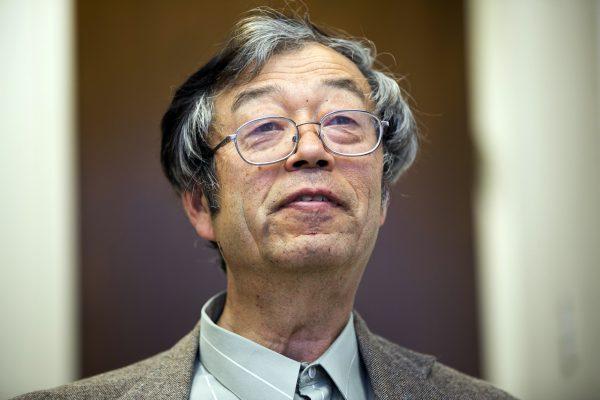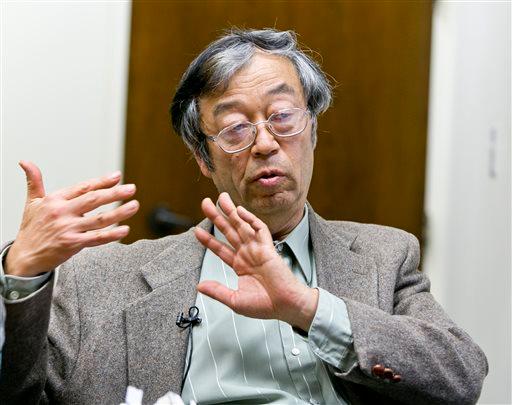The High Court in London has ruled that Australian-born computer expert Craig Wright is not Satoshi Nakamoto, the pseudonym of the cryptocurrency genius accredited with creating bitcoin.
Two months later Mr. Nakamoto posted the code for the first version of the software which would allow people to create and exchange bitcoin.
Bitcoin, sometimes referred to as “digital gold,” has been the most successful cryptocurrency although its value has fluctuated since its inception, reaching an all-time high this week of almost $74,000.
At the end of a civil trial in London on Thursday, Mr. Justice Mellor ruled against Mr. Wright, who was being sued by the Crypto Open Patent Alliance (COPA), a non-profit group including large cryptocurrency firms.
Mr. Justice Mellor said he would give the reasoning behind his ruling at a later date.
Earlier this week, in his closing argument, Jonathan Hough, KC, counsel for COPA, said, “Dr Wright has been shown to have lied on an extraordinary scale, and it is difficult to think of a precedent for what he has done. He has invented an entire biographical history, producing one tranche after another of forged documents to support it.”
“Even when the extent of his dishonesty and forgery was exposed to him in cross-examination, he doubled down, forging further documents during the trial, blaming a litany of characters, asserting implausible technical excuses and suggesting a vast and ever-growing conspiracy to frame him, all in an effort to evade his own responsibility.”
Mr. Hough said Mr. Wright’s defence had been “comical” at times but he said his conduct was “no laughing matter.”
COPA Want Wright to Be Charged With Perjury
He said COPA would be asking for a transcript of the trial to be sent to the director of public prosecutions, Stephen Parkinson, “for consideration of prosecution for the offences of perjury and perverting the course of justice.”Mr. Wright, who lives in Britain, denies any wrongdoing.
After the ruling, a COPA spokesperson said, “This decision is a win for developers, for the entire open source community, and for the truth.”
During the trial—which has been followed avidly by cryptocurrency supporters around the world—Mr. Hough claimed Mr. Wright created an “elaborate false narrative” and “terrorised” anyone who dared to challenge him.
But for the past 16 years mystery has surrounded the true identity of Mr. Nakamoto, who stopped communicating in April 2011.
Mr. Wright’s business partner David Kleiman died in 2013 but in 2021 Mr. Kleiman’s family sued Mr. Wright in Miami, Florida, claiming they were entitled to half of his assets of 1.1 million bitcoin, which was worth $54 billion at the time.
A jury rejected the Kleiman family’s claims but ordered Mr. Wright to pay $100 million to his late partner’s company for intellectual property infringement.
The family of Mr. Kleiman claimed the pair had worked together to create and mine the first bitcoin.
At the High Court trial in London, Mr. Hough said Mr. Wright’s claim to be Satoshi Nakamoto was “a brazen lie“ and part of an ”elaborate false narrative supported by forgery on an industrial scale.”
Mr. Hough said, “Dr. Wright has consistently failed to supply genuine proof of his claim to be Satoshi: instead, he has repeatedly proffered documents which bear clear signs of having been doctored.”
He also accused Mr. Wright of using the AI software ChatGPT to forge documents “due to the pressure of time.”
Mr. Wright’s barrister, Lord Grabiner, KC, said his client had released the Satoshi Nakamoto white paper, “having spent many years devoted to studying and working on concepts underpinning bitcoin” and said there was “clear evidence” he had created bitcoin.
Lord Grabiner said COPA was “exclusively concerned” with undermining Mr. Wright’s claim and queried why nobody else had ever proved to be Satoshi Nakamoto.
So Who Is the Real Satoshi Nakamoto?
There have been a number of claims about who is the real Satoshi Nakamoto.
In March 2014 Newsweek published an article claiming a man called Dorian Satoshi Nakamoto was the creator of bitcoin.
He even claimed financial difficulties had prompted him to discontinue his internet service in 2013.
Mr. Szabo described Bit Gold as “a protocol whereby unforgeable costly bits could be created online with minimal dependence on trusted third parties.”
In July 2014 Mr. Szabo reportedly emailed financial author Dominic Frisby, who had claimed he was Mr. Nakamoto, and told him, “I’m afraid you got it wrong doxing me as Satoshi, but I’m used to it.”







